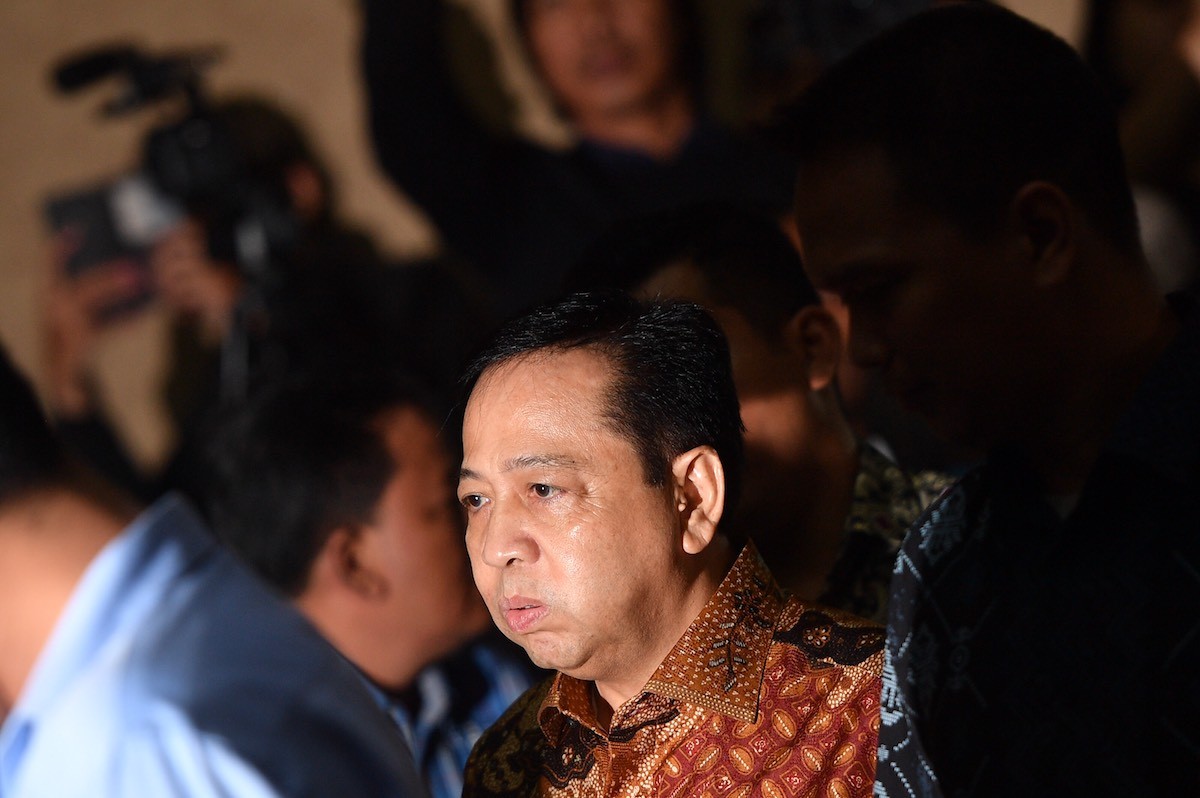Popular Reads
Top Results
Can't find what you're looking for?
View all search resultsPopular Reads
Top Results
Can't find what you're looking for?
View all search resultsMerciless KPU
Candidates with better track records would help consolidate our democracy.
Change text size
Gift Premium Articles
to Anyone
O
ur society appears to tolerate corruption, as evident in the people’s mandate given to corruption suspects and candidates linked to a corrupt political dynasty in the recent regional elections. Amid such tolerance the General Elections Commission (KPU) regulation that bans former graft convicts from contesting the upcoming legislative elections is justified.
Of course the regulation has stirred controversy, which the KPU must have anticipated. Political party leaders — who are selecting candidates for the April 19, 2019, legislative elections from July 4 to 17 — look set to challenge it at the Supreme Court.
KPU Regulation No. 20/2018 requires political parties to exclude individuals convicted of corruption, sexual crimes against children and drug dealing from their candidate lists. Whenever the KPU discovers such candidates it will disqualify them immediately and ask the related political parties to submit their replacements.
Politicians from both the government and opposition coalitions have accused the KPU of breaching the 2017 Election Law. This law allows convicts, who have served their sentences for crimes punishable by up to five years of imprisonment, to contest legislative elections as long as they declare their criminal records to the public.
Such a mechanism of confessing one’s sins is intended to serve as a warning to voters before they cast their ballots. It works if voters understand the risks of entrusting individuals tainted by graft to sit in legislative or executive posts. But our society tends to be forgiving and when it comes to elections they tend to choose candidates with records of corruption over those accused of religious blasphemy.
Proof of the social permissiveness of corruption is the absence of mass rallies to demand the dismissal of corrupt leaders, regardless of the fact that corruption has been declared an extraordinary crime because of its tangible impact on people. But thousands will take to the street when the rallying point is a politician accused of insulting a religion, although its affect on people’s wellbeing is difficult to measure.
Taking advantage of people’s behavior, graft-tainted politicians and political parties have claimed to the electorates that the corruption cases targeting them are politically motivated or that they never intended to enrich themselves and were acting in the public’s interest.
Since the sweeping political reforms 20 years ago, Indonesia has held four general elections that even the international community has hailed as free and fair. But each of the elections has generated corrupt politicians, as manifested in the dozens of House of Representatives and regional legislative council members jailed for graft. Following the reforms, the legislature has unsurprisingly turned into the most corrupt institution, according to a number of studies.
The lack of deterrence in our criminal justice system is a long-standing problem that impedes the painstaking efforts to combat corruption. The new KPU regulation can serve as an instrument to deter political corruption while removing potential risky individuals from the list of legislative candidates. Candidates with better track records would help consolidate our democracy.
Whatever the Supreme Court says about the KPU regulation, we need a merciless anti corruption election body.










